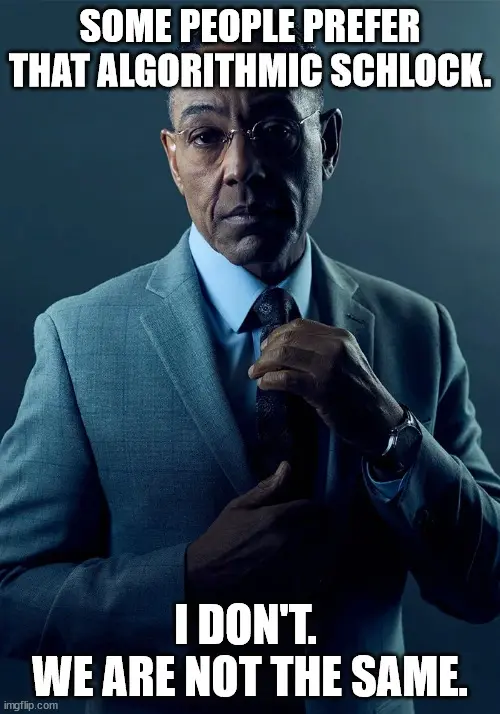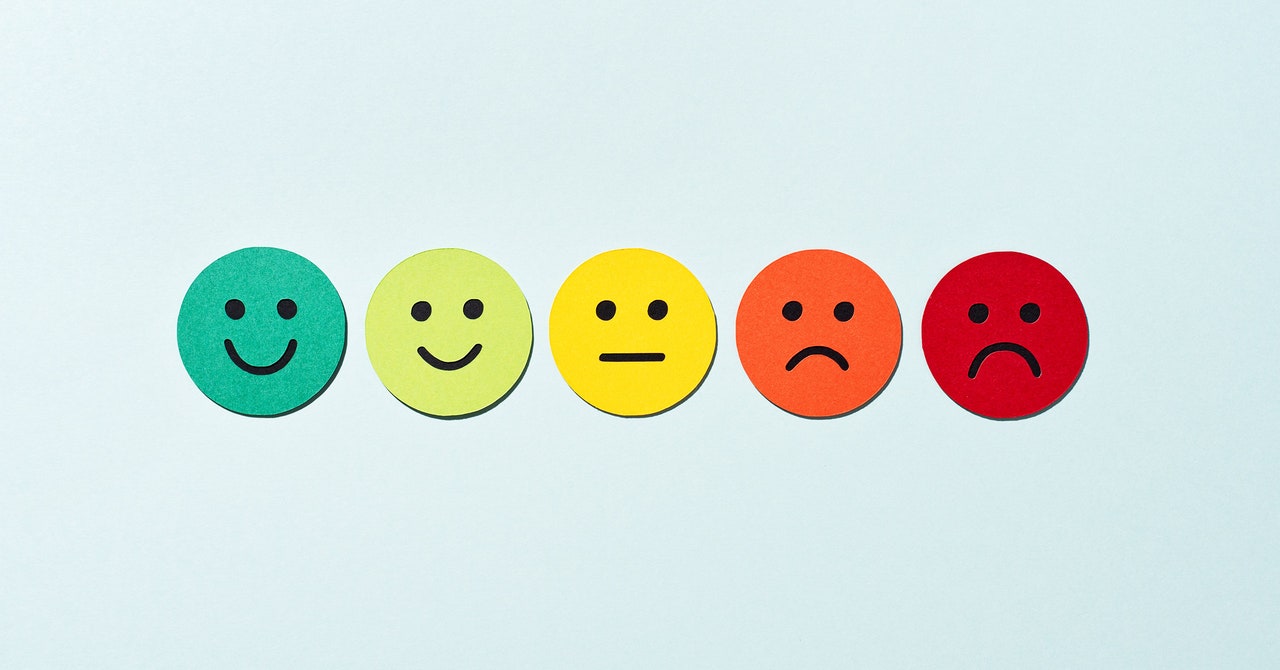Meta conducted an experiment where thousands of users were shown chronological feeds on Facebook and Instagram for three months. Users of the chronological feeds engaged less with the platforms and were more likely to use competitors like YouTube and TikTok. This suggests that users prefer algorithmically ranked feeds that show them more relevant content, even though some argue chronological feeds provide more transparency. While the experiment found that chronological feeds exposed users to more political and untrustworthy content, it did not significantly impact their political views or behaviors. The researchers note that a permanent switch to chronological feeds could produce different results, but this study provides only a glimpse into the issue.
I think this is bullshit. I exclusively scroll Lemmy in new mode. I scroll I see a post I already have seen. Then I leave. That doesn’t mean I hate it, I’m just done!
I think there’s a time and a place for algorithmic feeds. When it comes to Facebook i personally think it makes sense to have a way of filtering the important things first, based on who you interact with. It’s a social network in the definitive sense; we care about some people more than others depending on where in the network they are. However we’ve seen how things go when Facebook use it with pages/news stories (which is really concerning).
For things like Twitter, I want chronological. It’s a real time platform based on sharing information across a larger audience. Its use in breaking news makes timing important. It’s largely gone to shit now because Musk, but in its heyday anyway.
Ideally there should always be a choice, or at least some transparency around how the algorithms work. That way everyone can choose what works for them based on how they use the platform.
Is it possible to design a content recommendation algorithm that isn’t game-able? As it stands right now I don’t think that algorithms are fundamentally bad, just that capitalism ruins everything.
If you weighted things by clicks vs time viewing maybe? The true issue is lack of moderation.
Non genuine accounts boost the post for whatever reason. This creates engagement. This is good for the marketer and the platform because they make their money through advertising. They don’t care if marketing firms are using thousands of zombie accounts to boost posts.
Goodhart’s Law: Any statistical regularity will tend to collapse once pressure is placed on it for control purposes.
Or, to paraphrase, any metric that becomes a target ceases to be a good metric. Ranking algorithms, by their nature, use some sort of quantifiable metric as a heuristic for quality.
I don’t think the idea should be to make the algorithm’s ungameable because I feel like that is literally impossible with humans. The first rule of web dev or game dev is that the users are going to find ways to use your site, app, software, or api in ways you never intended regardless of how long you, or even a team of people, think about it.
I’d rather see something where the algorithm is open and pieces of it are voted on by the users and other interested parties. Perhaps let people create and curate their own algorithm’s, something like playlist curation on spotify or youtube but make it as transparent as possible, let people share them and such. Kind of like how playlists are shared.
How much additional shit did Facebook push to the users feeds though? People are engaging less because Facebook has added a million ads and a billion posts from people and groups you never agreed to follow. Facebook can’t be trusted for anything. They’ll game any study to support whatever outcome they wanted in the first place. It’s run by a sociopathic, lying, thief.
They don’t “hate” chronological feeds. The study say they are more likely to disengage, and that’s probably because people got what they need from the chronological feed and log off to do other things…
Proving that chronological feed is more healthy.
This sounds like a successful efficiency study presented by a horror director.

“Spend less time once on” is different than “hate”. I hated FB’s feed so much that I was reluctant to get on in the first place, a metric completely different from how long I would spend once I DID open it.
I’m sorry, but those “suggestions” sound wrong - a chronological feed exposes users to untrustworthy content. The point is an algorithmic feed is unknown manipulation UNLESS the algorithm is known and published. Engaging less is also NOT a bad thing at all, unless you are the platform itself. The inference is that an algorithm will expose users to less political and untrustworthy content? Well, certainly not if the platform wants to generate continuous engagement through provocation and the creation of outrage.
But OK, it is an experiment by Meta, so let’s just leave it at that.
I think this is bullshit.
I think it is exactly how people are behaving. And I can even recall witnessing many people first hand who flip a newspaper to the sports section. Never learning anything about science news, medical news, unless it’s some kind of social column about a diet.
People wanting to cut out and block things they don’t want to read in a newspaper is what I consider the “default behavior” of most of humanity. No surprise they do not care about the news their friends share. An intelligent computer system that filters out (based on topic/content study) what they don’t want to see before-hand is always going to be popular with such people.
“One of the effects of living with electric information is that we live habitually in a state of information overload. There’s always more than you can cope with.” — Marshall McLuhan.
Accidentally deleted my comment instead of saving edits. Here it is again.
I favor OP’s perspective, but that’s because I sub to/follow the stuff I find interesting so I can ignore everything else. I already “made” my own algorithm by only following the stuff I care about, now show it to me chronologically instead of according to your algorithm (because honestly, either your algorithm is optimized for engagement and shows tons of ragebait because it gets engagement and it gets me mad, or it’s actually good and I spend more time online than I wanted to and feel bad. Yes, I know not being able to just cut myself off is a problem, but there’s something to be said for engineering addictive algorithms too).
My experience with algorithms and “for you” is algorithms shoving ragebait in my face and me not always being able to resist clicking. Content delivery algorithms have not been good to me, which heavily influences my view.
I favor OP’s perspective, but that’s because I sub to/follow the stuff I find interesting so I can ignore everything else. I already “made” my own algorithm by only following the stuff I care about, now show it to me chronologically instead of jamming in the stuff you think I’ll like (because honestly, either your algorithm is optimized for engagement and shows tons of ragebait because it gets engagement, or it’s good and I spend more time online than I wanted to and feel bad. Yes, I know not being able to just cut myself off is a problem, but there’s something to be said for engineering addictive algorithms too).
The actual problem is that they think they should just force one or the other on us. Give us a choice to sort our feed and we’ll figure out what we like best.
I’d like to interject for a moment and say,
this isn’t a test for what users like, this is a test for how users are addicted to the platform
algorithm provides content in a way that they become a consoomer and more often than not, we actually feel guilty and sad after an hour of scrolling and realising we wasted so much time (like post masturbation sadness)
I’m the opposite, chronological feed made me use social media even more
Mix addictive ingredients into food and the consumer will eat more than naturally, but it’s not better for him. Saying “more is better” and confusing “to engage” with “to like” is eval.
Less engagement is exactly what I would want. Show me my new chronological content and then I’ll get the hell out of there.
People hate exercise, too. Not doing it will shorten their lives, but they hate it.
So basically the algorithm feeds an unhealthy addiction. And in no moment the study even tries to contradict the main concerns against algorithm-based sorting: lack of transparency, unhealthiness, bubbling, and feeding into dichotomies like “you like apples, so YOU’RE A BANANA HATER!”.
Better approaches put power on the hands of the users. For example, tagging content, or sorting it into communities. Perhaps not surprisingly it’s how Mastodon and Lemmy do it, respectively.
There’s also the matter of quality, not just personal preferences; this sort of thing does require an algorithm, but there’s nothing preventing it from being simple, customisable, and open, so users know exactly why they’re being shown something instead of something else.












